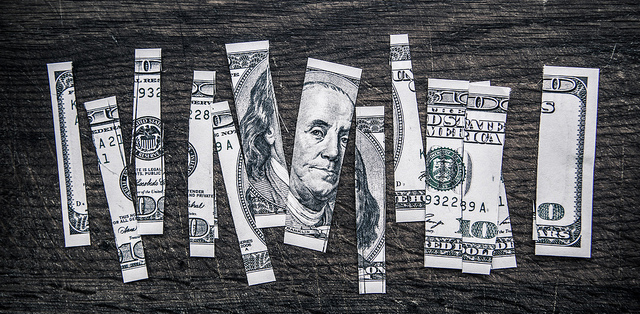Archived
Reform in the States: A Roundup
This is part of a series examining ethics, transparency and campaign finance proposals in the states. Washington, D.C. is the only place in the country where money-in-politics reform is a tough sell.…
Archived
Image by Tax Credits / Flickr
Is it just us, or is dark money getting even darker?
On Tuesday, the House passed H.R. 5053, the Preventing IRS Abuse and Protecting Free Speech Act. The bill forbids the IRS from requiring tax-exempt organizations to disclose their contributors in annual reports. It was painted by its sponsor, Rep. Peter Roskam (R-IL), as a way to prevent the IRS from targeting groups for their ideologies.
In other words, Roskam’s bill gives 501(c) organizations the green light to receive unlimited sums from donors to influence our elections, without any amount of accountability. It’s no surprise that those who backed this bill benefit most from it, allowing them to continue to spend millions of dollars in our elections by redirecting undisclosed donations. These groups, which include FreedomWorks, Americans for Tax Reform and the Koch-led Americans for Prosperity, among others, spent more than $6 million in the 2014 election cycle. Organizations supporting Democrats would also benefit handsomely.
The bill was a thinly veiled attempt to stifle one of our key watch dogs. The IRS keeps a critical eye on 501(c) organizations’ donors to make sure illegal money, including from foreign individuals and governments, doesn’t pervade our elections. Foreign donations to campaigns are illegal, of course, but they can continue unabatedly through 501(c) groups without an effective monitor.
The 240 members of Congress who voted for H.R. 5053 are blatantly ignoring their constituents’ wishes. A late 2015 poll by the Associated Press-NORC Center for Public Affairs Research found that 78 percent of both Democrats and Republicans favor donor disclosure requirements for all groups that help to get people elected—like 501(c) groups. Beyond that overwhelming majority, 87 percent believe full disclosure would be at least somewhat effective in reducing the influence of money in politics. Coincidentally, that’s just about the opposite of Congress’s approval rating.
That Congress is spending its time debating IRS disclosure requirements and not more pressing topics, like allocating funding to fighting the Zika virus or filling vacancies in our federal courts system, reveals the immense power that donors have over setting the political agenda. Donors’ control over our politicians goes beyond how they vote. Yesterday’s vote shows how they get to decide what our elected officials vote on. The vast majority of Americans wouldn’t be affected by the requirements and simply don’t care about them. Why, then, is Congress making the issue a top priority in an election year?
That’s why Issue One has signed on to a letter with other reform groups, including Democracy 21, the Center for Responsive Politics and the Campaign Legal Center, to urge our elected officials to vote against opening the foreign donations loophole. Now we can only hope the Senate and president heed our call.
Issues: Dark Money & Super PACs, Money in Politics
Archived
This is part of a series examining ethics, transparency and campaign finance proposals in the states. Washington, D.C. is the only place in the country where money-in-politics reform is a tough sell.…
Archived
It’s no secret that campaigns are big money-makers. The 2012 election, the most expensive in history, cost over $7 billion — that’s a lot of buttons and yard signs. Through…
Archived
According to a recent New York Times/CBS News poll, Americans across the political spectrum are concerned about the influence of money in politics. 85% of respondents, including 81% of Republicans,…

